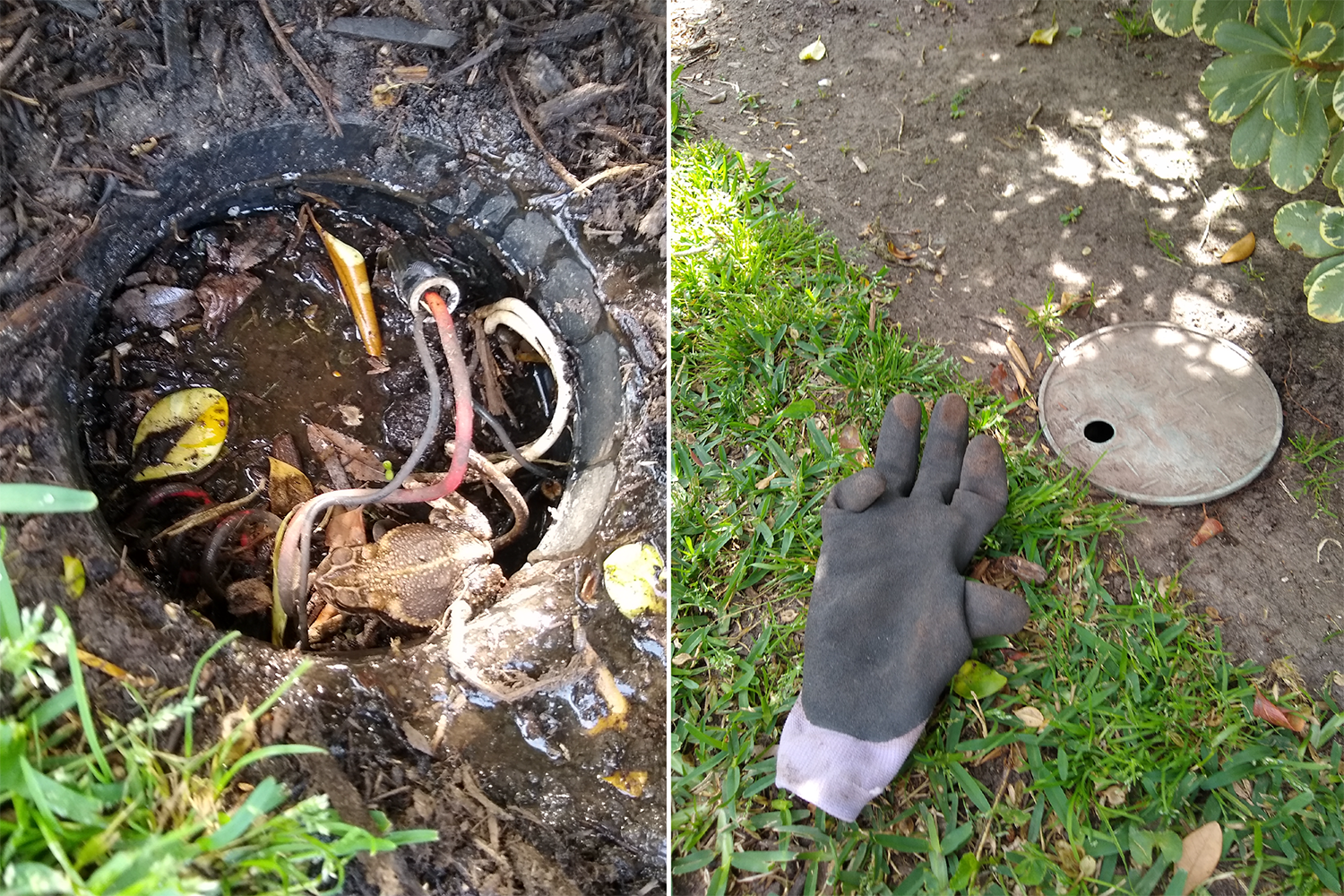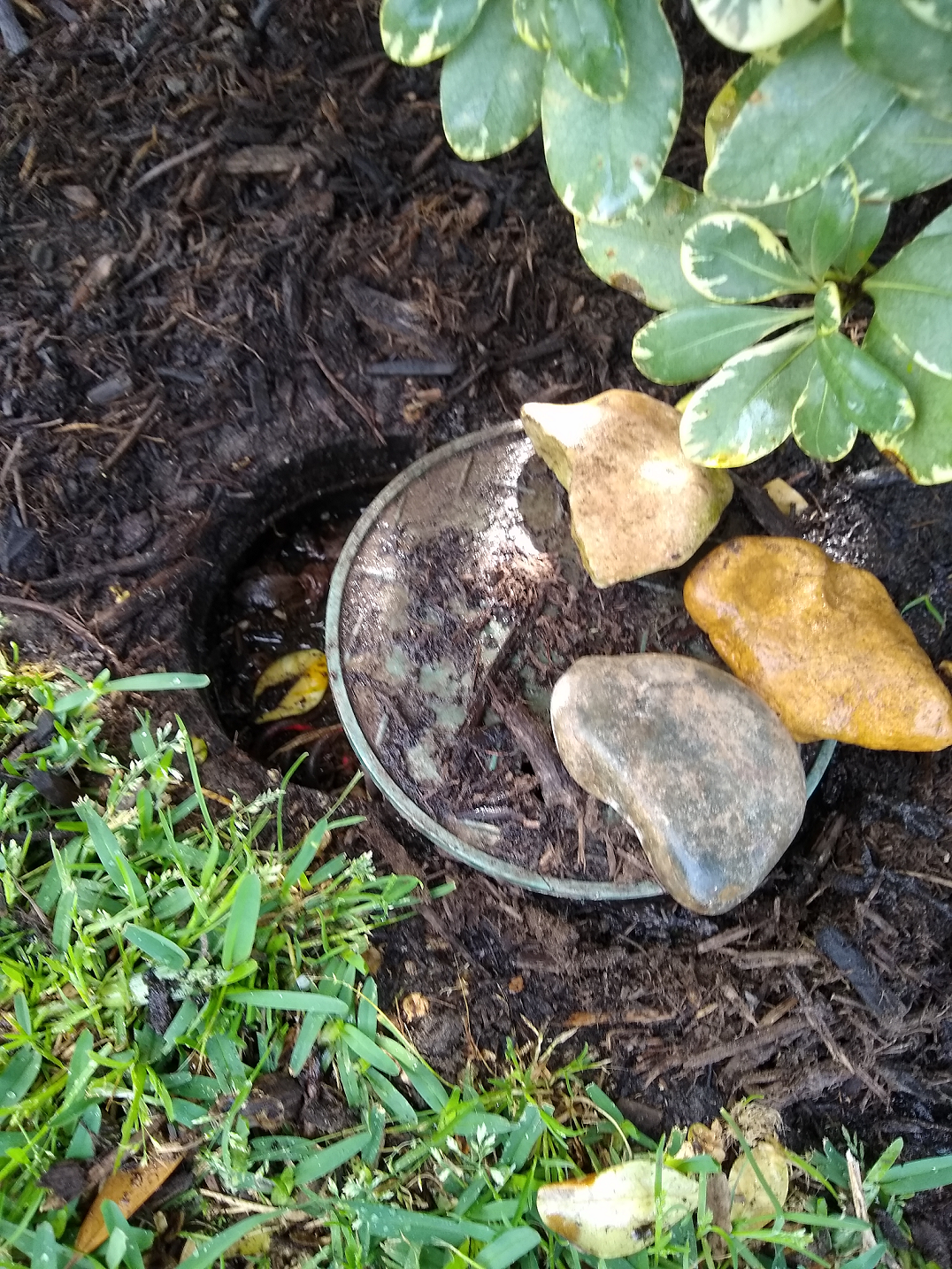Toad Story
by Andy Boyd
Today, an existential moment. The University of Houston presents this series about the machines that make our civilization run, and the people whose ingenuity created them.
Every year as I do my spring planting I find toads in the junction boxes of our sprinkler system. What's amazing is that the toads are much larger than the only opening in the boxes -- a finger-width hole used to grasp the lid and pull it off. The toad bodies are five times that size. If that sounds impossible, it is - at least for a fully grown toad. And therein lies the answer. The toads must enter through the hole when small enough to fit, then grow to full size once inside the box.
 Frog and glove
Frog and glove
Finding the trapped toads is a common occurrence. This year, two of the three boxes I checked had full-size toads. One had two toads. In the past, I've found as many as three in a single box, which doesn't leave much room for moving about. The toads are healthy as best I can tell, so they must receive enough bugs and water not just to survive but to grow and thrive. I've also never discovered a carcass. I can't imagine that I've freed all of the trapped toads - the junction boxes were around for many years before I first had reason to look inside one. Natural bacterial decomposition together with the aid of bugs must do away with the remains. Or perhaps the frogs I first found were just very old.
I free the trapped toads when I find them. But this year, for the first time, I found myself confronted with an existential question. Watching a toad sit where I'd set him - he didn't hop away - I realized I'd displaced him from the only home he'd known his entire life; a place safe from predators where he'd had enough food and water to live. So I asked myself: was the toad happier now that he was free, or would he have been happier if I'd left him in the box?
Most people to whom I posed the question felt the toad would be happier once set free, though one person understood my dilemma. "How would you feel," he told me, "if a giant ripped the roof off your home and set you down in a strange new land?" Another person suggested that I leave the lid half open to see what a toad would do if given a choice. When I located another grown toad in a junction box I performed the experiment as suggested. The toad stayed, tucked under the lid all afternoon. For two days he stayed. But when I checked the third day he was gone. That was that I thought. But sure enough he returned a day later. He stayed for a day, then left once again. I remain on toad watch, but I fear my friend the toad may be enjoying his newfound freedom for good. Or perhaps he's just lost. If he returns, it seems only proper to give him a name.

Frog lid half off
Does this prove the toad is happier living at large? No. The reality is I have no idea what toad happiness feels like. I'm not a toad and I'm sure our respective brains perceive the world quite differently. But the question was interesting to ponder nonetheless. Going forward, I think I'll prop the lid half off and let the toads make their own decisions. Or maybe I'll tape over the holes so the toads don't get in in the first place. But if I do, might I be depriving members of the toad community of luxury accommodations?
I'm Andy Boyd at the University of Houston, where we're interested in the way inventive minds work.
All pictures by E. A. Boyd.
This episode was first aired on April 7, 2020